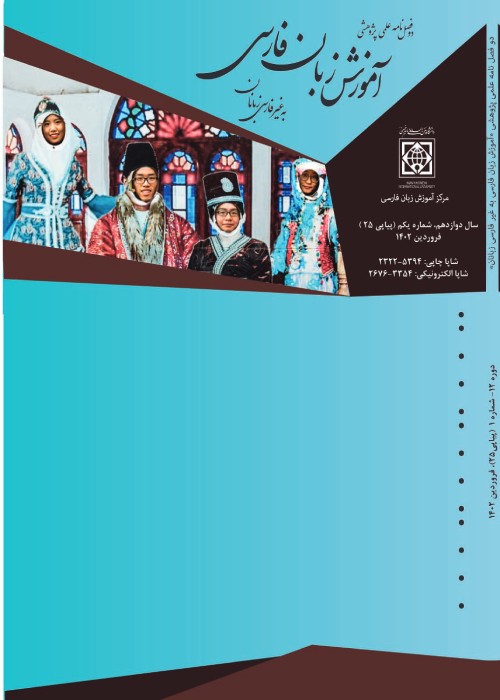Explaining the Origins of Language Universals and Their Implications in Teaching Persian to Speakers of Other Languages
Author(s):
Abstract:
The common belief among a great number of linguists and psycholinguists is that the solution to the problem of language acquisition، also called the projection problem or Plato’s problem، lies within the prior knowledge. One hypothesis that constitutes the foundation of this belief is that the gap between the child-exposed input (primary data) and the linguistic system (linguistic competence) is so vast that the first language acquisition can be explained only in terms of the prior knowledge. Another hypothesis that underpins this belief is that innate knowledge is the only source of language universals. This paper challenges this common belief from three perspectives: (a) the main features of universal grammar، (b) routes to universal grammar، and (c) the origins of language universals. In addition، it discusses this pluralistic perspective in teaching Persian to speakers of other languages.
Keywords:
Language:
Persian
Published:
Journal of Teaching Persian to Speakers of Other Languages, Volume:2 Issue: 3, 2013
Pages:
117 to 134
magiran.com/p1276427
دانلود و مطالعه متن این مقاله با یکی از روشهای زیر امکان پذیر است:
اشتراک شخصی
با عضویت و پرداخت آنلاین حق اشتراک یکساله به مبلغ 1,390,000ريال میتوانید 70 عنوان مطلب دانلود کنید!
اشتراک سازمانی
به کتابخانه دانشگاه یا محل کار خود پیشنهاد کنید تا اشتراک سازمانی این پایگاه را برای دسترسی نامحدود همه کاربران به متن مطالب تهیه نمایند!
توجه!
- حق عضویت دریافتی صرف حمایت از نشریات عضو و نگهداری، تکمیل و توسعه مگیران میشود.
- پرداخت حق اشتراک و دانلود مقالات اجازه بازنشر آن در سایر رسانههای چاپی و دیجیتال را به کاربر نمیدهد.
دسترسی سراسری کاربران دانشگاه پیام نور!
اعضای هیئت علمی و دانشجویان دانشگاه پیام نور در سراسر کشور، در صورت ثبت نام با ایمیل دانشگاهی، تا پایان فروردین ماه 1403 به مقالات سایت دسترسی خواهند داشت!
In order to view content subscription is required
Personal subscription
Subscribe magiran.com for 70 € euros via PayPal and download 70 articles during a year.
Organization subscription
Please contact us to subscribe your university or library for unlimited access!


